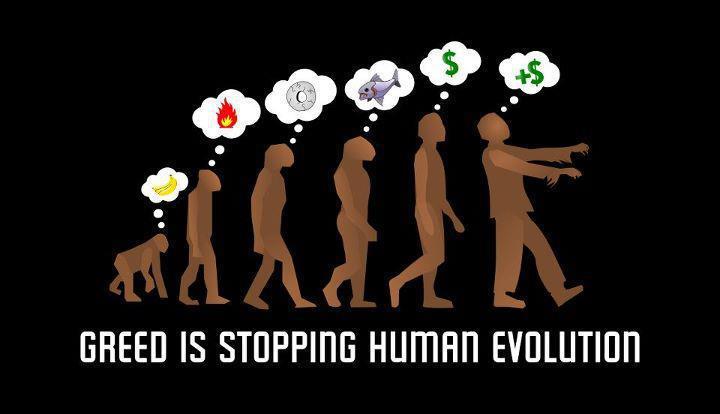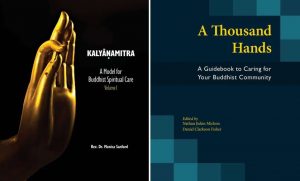
The problems of the 21st century are at once different and similar to those of the ancient world. Modern humanity is rapidly accomplishing the results of scientific and modern technological progress. Though we are not entitled to say that archaic humanity was better than modernity, it is clear that we face a perfect storm of socio-economic, political and environmental problems. The society in which we live today is highly complicated with many problems (jat?s). The major difference between the ancient era and the current one is that we face the danger of extinction. Scientists and commentators are almost certain nuclear war or global warming will affect the entire world.
Bahijat?: Man-made Crises
Day by day, more new (and old) troubles and social problems arise in our society. Poverty, malnutrition, overpopulation, pollution, unemployment, drug-related crimes, poverty-related crimes, terrorism, global warming, and war are to name but a few. In short, the whole of human society is in a state of confusion. This socio-economic situation is indicated by the P?li term ‘bahijat?’.
Many are running after pleasures, money or sensual happiness without understanding what they are truly doing. Can this chaotic situation be impeded in any way? Is there a heavenly deity or someone else to resolve these man-made problems? As Prof. Gunapala Dharmasiri says, modern man is digging his own grave at a frantic rate.
K?magavesi Society
Modern society has become a pleasure-seeking social order (K?magavesi Samaja), a society centered on money and competition for its own sake. As a result, collaboration or cooperation among human beings is seen as weakness. Human beings seek happiness through competition, but instead discover despondency, unhappiness, suffering and dissatisfaction. Such negative energies are the very foundation of competition. Therefore, we are in urgent need of a transformation of human attitudes. Human attitudes and thoughts play major role in our progress or ruin. So, K?magavesi sankappas or pleasure-seeking attitudes of this K?magavesi Samaja (pleasure-seeking society) should be understood very carefully.
Di??his (False Views)
Di??his or dogmatic false views play a major role in many conflicts of the world today. Rigid views close minds and recoil at new ideas. Some who are bound bycertain religious di??his or mythical views do not readily read the ethical or spiritual texts of other faiths. They never even give permission to their followers to think or hear of such things other than their own ideology. They see all other faiths as enemies to their culture, suppressing common feelings of brotherhood and sisterhood. In contrast, Buddhism discards all mythical views in the public arena – its teachings paved the way for the development of philosophical logic and argumentation in India (Dign?ga, Dharmakirti, etc.).
Blind Faith
Buddhism teaches us to be open-minded and to give up all pre-conceived ideas and prejudices in order to understand reality. Buddhism is not a secret doctrine. Buddhism does not demand blind faith (am?lik? saddh?) from its followers and it instructs us to cultivate “saddh?” (confidence) but not “bhakti” or mere faith. In other religious contexts, bhakti is a more significant role for spiritual cultivation.
According to Buddhism, mere faith may lead us to partial blindness of knowledge. According to one classification, “Saddh?” is explained in Buddhism as twofold: ‘am?lik? saddh?’-(blind faith) and ‘?k?ravati saddh?’– (confidence grounded on knowledge and inquiry). Buddhists and other humans are advised to cultivate ‘?k?ravati saddh?’ whereas ‘am?lik? saddh?’is to be abandoned. Those who hold fast blind faith are literally like unsighted people.
K?magavesi Problems
What is the Buddhist attitude to the problems of a pleasure-seeking Society? Before going to give solutions to various problems of this “modern industrial person”, or “computer-encircled person”, Buddhism advises us to scrutinize the real cause of all problems. It explicitly explains that all problems arise as a consequence of our desire (lobha), hatred (dosa), and delusion (moha).
We have systematically abused the planet. Why do we insist on making atomic bombs, laser bombs, and intercontinental missiles in the name of arms dealers? What is the use of supersonic fighters? How many billions of money that we waste for this “economy of death”? These are the manifest results of man’s desire (lobha) and hatred (dosa). An invisible umbrella of computerized nuclear terror and military-industrial complexes shadows the world. This proves that human desires can never be satisfied with whatever we own.
Ta?h?j?la
Desire or ta?h? (or lobha), the fever of unsatisfied longing, is everywhere. We all swim in the ocean of desire (Ta?h?-samudda). It is a poisoned arrow (Ta?h?-salla). People are dancing to the feelings that the poisoned arrow has inflicted (Ta?h?-salla). Ta?h? can destroy serenity and compassion. We are asked to uproot desire if we wish to lead a happy life. From birth to death, we are running after sensual pleasures and wealth or power, until finally we get exhausted and frustrated and, when we look back, only then do we understand that we have run after nothing more than our own mind.
Political leaders run after partisan motivations, driven by their ‘isms’ or ideologies. Some religious leaders are of the opinion, “This alone is the precise truth, and everything else is false” (idhameva sacca? moghamañña?).
Oneness of Humanity
Despite all that we’ve done in the name of impure motivations, humanity’s true nature is sacred. Many do not understand why they are ashamed of their own species. This is because they also see humanity’s blindness to reality and ethics. In accordance with the V?se??ha sutta and the Assalayana sutta of the Majjhima Nik?ya, we may come to following conclusion: “There is one race in the world, that is, the human race; there is one caste in the world, that is, the human caste.”













